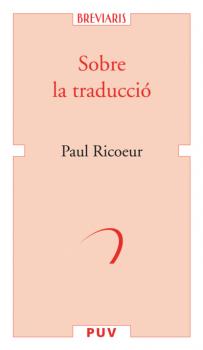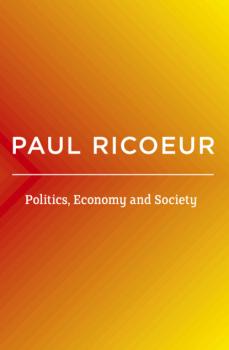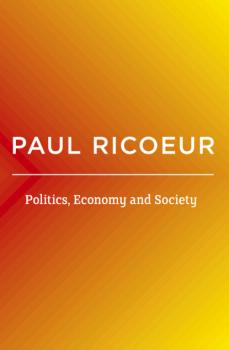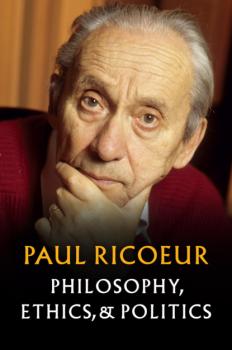Paul Ricoeur
Список книг автора Paul RicoeurSobre la traducció
Sobre la traducció recoge tres textos de Paul Ricoeur a propósito de la traducción. En estas páginas el autor reflexiona sobre temas muy presentes en su obra hermenéutica, centrándose especialmente en la paradoja de la traducción, que es a la vez teóricamente inviable y una realidad práctica cotidiana, un hecho real. Ricoeur no simplifica el problema teórico de la traducción como operación compleja de comunicación entre contextos culturales diferentes, ni dramatiza de manera agónica su dificultad. Más bien nos muestra los dilemas y las paradojas. Su propuesta se sitúa entre la resignación y el optimismo: la traducción perfecta sólo es un ideal al cual no se llega nunca. Ricoeur nos invita a reflexionar y nos hace entender mejor el sentido y el alcance de una operación llena de obstáculos y trampas, pero que es esencial, constitutiva, de nuestro mundo cultural.
Politics, Economy, and Society
The philosophy of Paul Ricoeur is rarely viewed through the lens of political philosophy, and yet questions of power, and of how to live together in the polis , were a constant preoccupation of his writings. This volume brings together a selection of his texts spanning six decades, from 1958 to 2003, which together present Ricoeur’s political project in its coherence and diversity. In Ricoeur’s view, the political is the realm of a tension between “rationality” (the attempt to provide a coherent explanation of the world) and “irrationality,” which manifests itself in force and repression. This “political paradox” lies at the heart of politics, for the claim to explain the world generates its own form of violence: the more one desires the good, the more one is inclined to impose it. Ricoeur warns citizens, the guardians of democracy, against any totalizing system of thought and any dogmatic understanding of history. Power should be divided and controlled, and Ricoeur defends a form of political liberalism in which states are conscious of the limits of their power and respectful of the freedom of their citizens. Ranging from questions of power and repression to those of ethics, identity, and responsibility, these little-known political texts by one of the leading philosophers of the twentieth century will be of interest to students and scholars of philosophy, politics, and theology and to anyone concerned with the great political questions of our time.
Philosophy, Ethics, and Politics
In this series of interviews and dialogues which took place between 1981 and 2003, Paul Ricoeur addresses some of the central questions of political philosophy and ethics: justice, violence, war, the environmental crisis, the question of evil, ethical and political action in the polis. Philosophical issues are brought to bear on present-day concerns and the practical realities of contemporary politics. <br /><br />How can the philosopher speak about politics without claiming superior insight or a higher order of knowledge? Ricoeur distinguishes three levels of society: ‘tools’ (modes of production and the accumulation of technology), ‘institutions’ (which are tied to national cultures) and ‘values’ (which claim to be universal). The philosopher’s task is to probe each of these levels and open up spaces for reflection, criticism and democratic deliberation. It is to explore the paradoxes of the political rather than invoking certainties dictated by conscience. Just as there no longer exists a grand narrative about the past, so too there is no longer any utopia capable of projecting the desired future. What remains is human creativity, which marks the source common to the institutional frameworks that are already present and the horizons that extend beyond them. The philosopher’s engagement lies in the promise to revive this source at the very moment it appears to dry up under the weight of the real. <br /><br />This volume of interviews and dialogues with one of the most important French philosophers of the post-war period will be of interest to anyone interested in the great political and ethical questions of our time.




